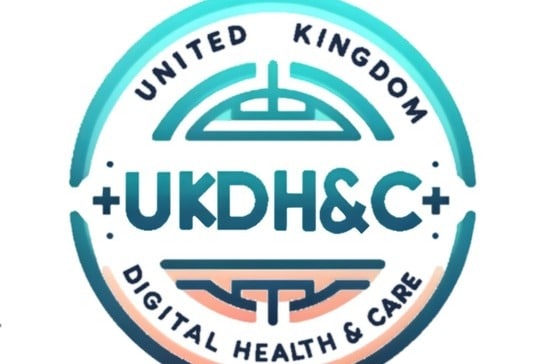Where are all our informatics professionals?
- 28 May 2020

A recent report by the national audit office (NAO) into digital transformation across the NHS highlighted that specialist skills in healthcare IT are in short supply and national bodies have not finalised plans to improve the workforce’s digital skills. Ahead of a Digital Health Webinar, Louise Brennan, programme manager for the graduate informatics and technology fast track scheme explores why recruitment is a real issue.
Recruiting into health informatics and technology has been a real problem for years. When I first started working in the NHS, one of things that struck me was the high number of informatics and technology managers – regardless of organisation type, that just couldn’t recruit into band 7 plus roles.
Hiring Mangers would place an advert on NHS jobs and 180 applicants would apply. It would take three days to go through short-listing, and if they managed to get five candidates scheduled for interview, most wouldn’t turn up and for those that did, they just didn’t have the skills. This meant having to re-advertise.
Need for a grad scheme
All this time and energy to find suitable informatics professionals – this just wasn’t working. The other thing that struck me is that we had no tech grad scheme that would be the natural pipeline into these band 7 roles. This is why I started the grad scheme – we had to build our skills pipeline.
Once we started the scheme, we got inundated at University careers fairs from graduates once they started to realise the NHS could have a career for them in data and technology. And the thanks we got for helping them find their first role in the NHS was heart-warming.
Designed by the NHS, for the NHS
The NHS doesn’t have a brand issue – it’s working just fine. What we didn’t have was the right mechanism to get to our graduates into our trusts. That’s where we were falling down. We now have a solution, we have a mechanism that is working – it’s the Graduate Informatics and Technology Fast Track Scheme.
We have over 5,000 graduates that apply each year, from all over the county clambering to start their career in the NHS/healthcare sector. They want to work with us, we just need to pick them up, before some other employer does – don’t we deserve to have the brightest informatics and technology grads coming out of our universities?
All the big tech employers have been out to our UK Universities, picking up 1000s of our staff, year after year while sadly we have sat back and let them.
I’m very pleased to say, we are now giving them a run for their money. We have the first national Informatics & Technology grad scheme, designed by the NHS for the NHS. To get your next talented grad – just drop us a line.
Louise will be joined by Alan Davies, innovative programmes and partnerships director at Health Education England and Lisa Emery, CIO at The Royal Marsden NHS Foundation Trust for a Digital Health Webinar on May 29.
The panel will discuss the grad scheme in more detail along with expansion plans.





8 Comments
Tried to get a job in NHS in IT in this field for many years and just gave up. Had a brand new MSc but not enough experience in programming. Now work with NHS from the Third/ Charitable sector on the public engagement side but am confounded by NHS practice of assuming that people should be clinicians first. Over the past 20 years have seen my local health board reinvent systems analysis again and again, recruiting nurses to fill these roles. Projects then stall, get kicked into the long grass until they are dug out yet again a few years later. It all links in with not training in data gathering/ management and poor reporting on project outcomes.
An interesting article. The NHS in my region was in the process of setting up a training scheme for school leavers as well as a graduate recruitment scheme for Informatics when Tony Blair restructured and all the SHAs who were leading on this were disbanded and merged into one with massive redundancies.
Fast forward a few years and just as similar schemes were being launched David Cameron disbanded the PCTs and NHS North West who were leading on this again with massive redundancies.
Now the local CCGs are being reorganised.
Advertising exclusively in NHS Jobs (as many Trusts do) means that everyone is fishing in the same pool which local non-NHS people are unaware of. Add to that the fact that under AfC the standard job descriptions call for NHS experience and you have insurmountable barriers to recruitment!
Pay has been effectively frozen since 2008 and hasn’t yet caught up with inflation, CIP pressures mean that many jobs are being advertised at a band lower than they were ten years ago. If you pay peanuts only monkeys and very desperate people will apply!
Training at both national and local level coupled with competitive pay is the only way to resolve this – but that would require an increase in taxation which few people will vote for!
Ah Liz, I have seen jobs for project managers in the NHS listing all the clinical background required and have actual project management experience or training as an optional extra – and this for roles where no clinical activity would be carried out. There is probably more than one reason for this but fitting in with the culture is often deemed important – many projects have failed for this reason (but many more for other reasons, like the one you have pointed out.)
Completely agree that informatics has been, and continues to be completely undervalued and poorly resourced for all the above reasons.
I agree with Kate that female roles at higher levels are also very under represented (and incredibly frustrating).
The comparison of like for like skills of NHS Sector and Private sector informatics workers and their pay levels is just not comparable.
I think this avoids the “Elephant in the room”. – pay. When I first started working in the NHS, they were attempting to recruit qualified informaticians, with some experience, into band 5 – with little success recruiting any quality. So they moved up to band 6 but still struggled to attract any high-quality staff. The next move was to create a new set of roles that would justify recruiting at band 7. This was more successful (but still difficult, as the article points out) but many of these staff found that there was little opportunity to move and, worse for the NHS, they took an opportunity and shortly, thereafter, were able to get a better-paid job elsewhere. (One place I worked. all the senior staff and many of the band 6/7 are now in the private sector.) I am glad to see that the NHS is moving to remove the glass-ceiling which prevented IT and Informaticians getting senior roles in Trusts – these were always reserves for finance who would be in charge of IT (which explains a lot of the investment issues.) I am still working in the NHS as I am a contractor but, if I were to go permanent, it would have to be as an 8B minimum. Clinical expertise can move staff high up the pay scale but technical expertise only goes so far, then you have to be management. This needs a rethink.
I absolutely agree with Nick Samuel.
I work in NHS Health Informatics and many extremely brilliant people leave because there is no room to move and the pay is so much better in the private sector for the same or lesser jobs. We work alongside contracting colleagues knowing they are being paid 3 times as much as us for the same work.
Don’t even get me started on being a woman in Health Informatics, that’s a whole other frustrating discussion for another day.
I think its actually the Leicestershire Health Informatics Service that covers the largest variance of health services informatics, training and support in England (I could be wrong?) but that’s probably where all the specialists are.
You are quite right Kate. The only way for IT professionals to get on is to go up the management route, so you end up with people running IDs who would rather being doing IT at a high level, When some of the very senior H & SC politicians say that the NHS is for physicians and managers, some of whom manage the IT. no wonder NHS IT is in dreadful mess, and it is. Show time, and time on the stage for so many but no progress. Digitally the NHS is 20 years behind, shame on some the leaders. DO IT do not just talk/milk IT. Technical people need to speak up and to be honest.
Agree. I am also a contractor (developer/architect an engineer in the outside world!).
When I started contracting I was looking for permanent but although I had over 10 years health IT experience my skills didn’t match (NHS wanted specific sills such as SQL Server skills or javascript, I have general skills which don’t fit into a specific pigeon hole). At least one manger expressed this same issue, the skills he needed didn’t match the job specs he had to use.
Looking in and the main reason I would not go permanent is the lack of carer paths for technical, you have to go manager. I’m lucky as I live in Leeds so you do have other opportunities but even then you still have issues around the skills needed to work in NHS D/X – they don’t necessarily match technical skills attained in the NHS. (Some have jumped)
Comments are closed.